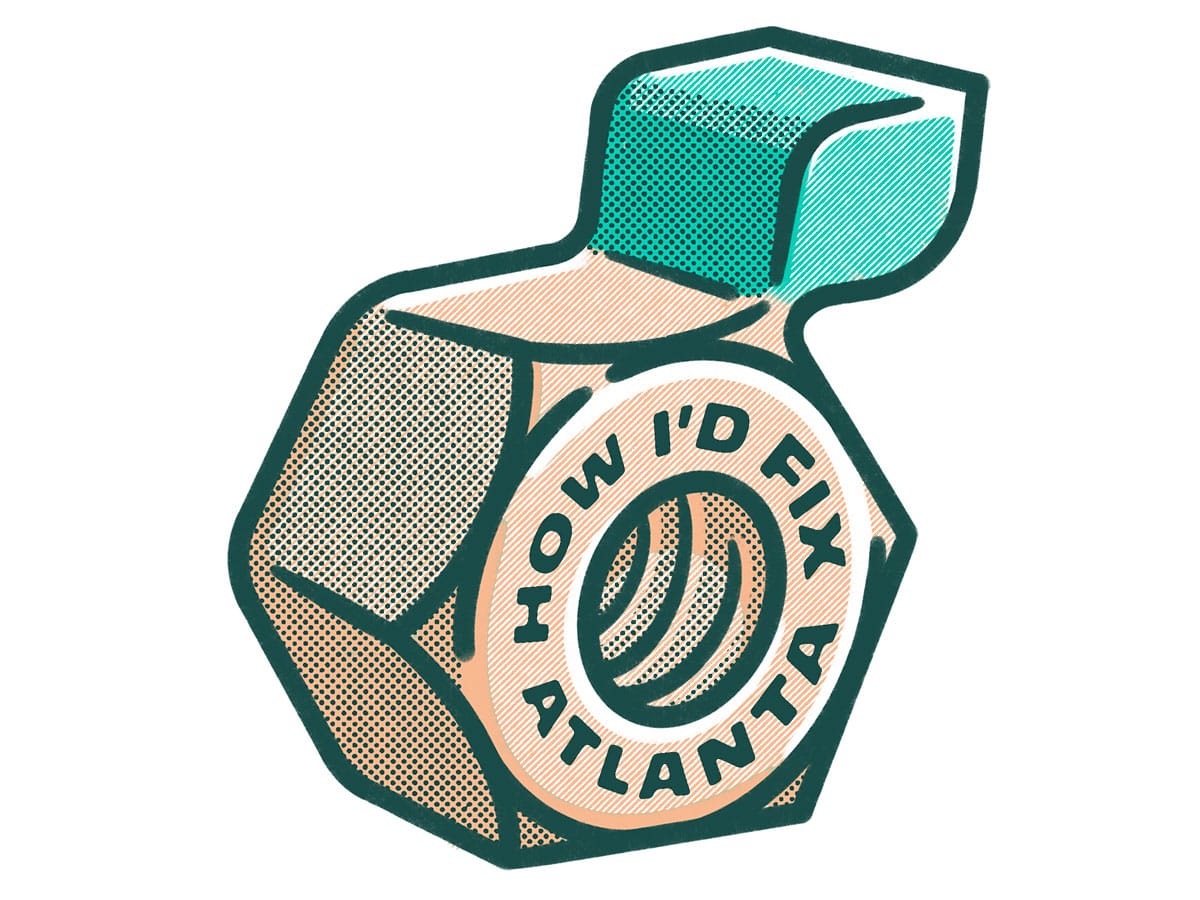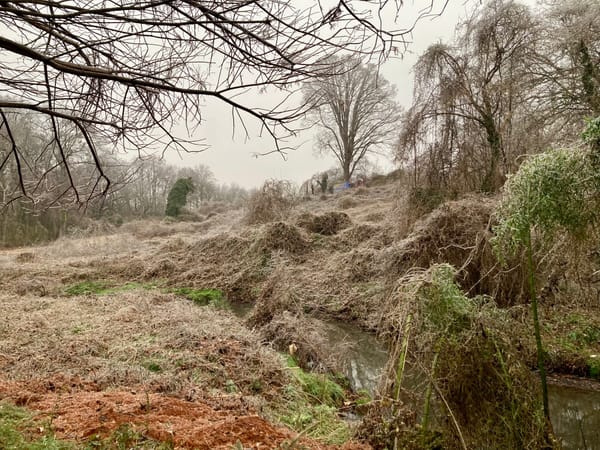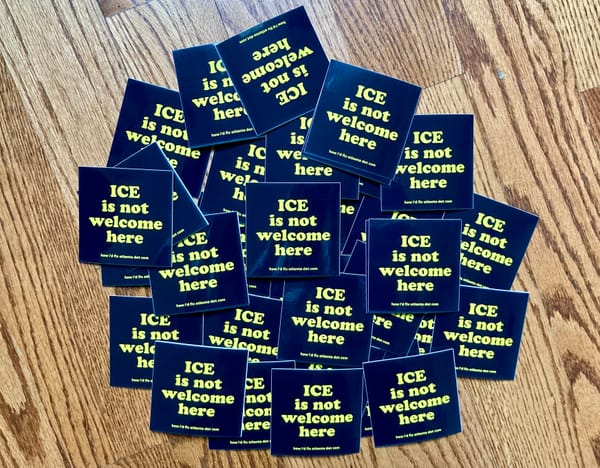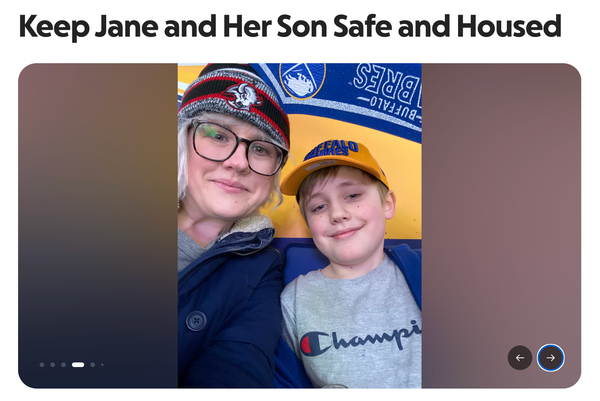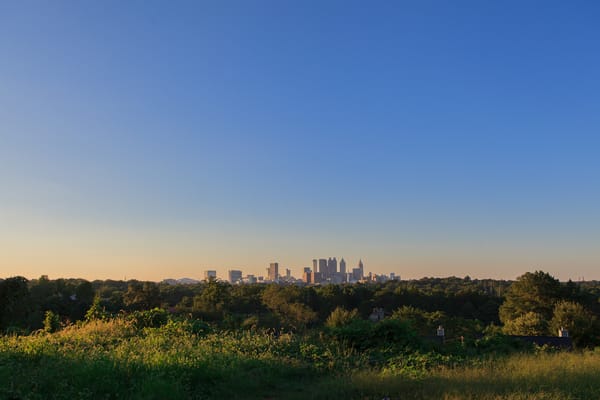How Kyle Stapleton Would Fix Atlanta
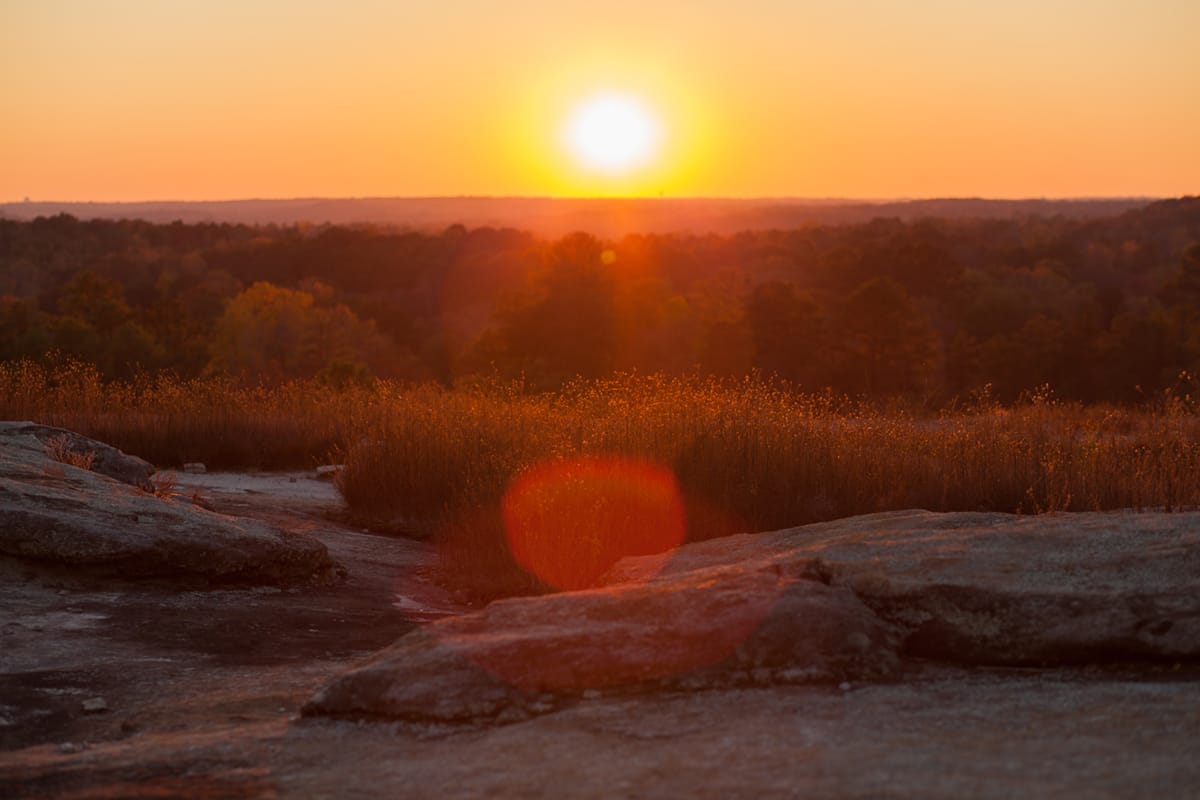
Good morning. Happy Thursday. A few quick programming notes:
- How I’d Fix Atlanta was recently featured on Rose Scott’s legendary WABE show, Closer Look! What an honor.
- We're no longer on Twitter! Our publisher/social director/Chief Doofus Officer is now focusing his efforts on Bluesky exclusively. Join us there if you like.
- Anybody else see The Jesus Lizard last night? Goddamn. The Jesus Lizard rules.
- Today’s essay is the Season Three finale. Kyle takes us out with a bang. Please enjoy, happy holidays, and thank you for supporting How I’d Fix Atlanta.
How I’d Fix Atlanta — I Simply Would Not!
Kyle Stapleton
A famous Atlanta transplant once encouraged us to know when to hold ‘em and when to fold ‘em. Folks, I’m here to tell you: cash out while you can. The house has won like it always does.
The battle for Atlanta’s future has long raged between two groups. There are the makers, who shape the city’s uniquely cool points of pride. And then there are the takers, who extract that cool for personal gain. As some friends of mine would say, it’s the culture versus the vultures.
If you’re a How I’d Fix Atlanta regular, chances are you already know some of the ways we’ve made life difficult for our makers and, unfortunately, also made life easier for our takers. We also lack the skill and/or the will to know and protect what makes this place feel like home.
I’m a native son of this city and have been among its most fervent cheerleaders over the past 20 years, but even I think it’s time to face the facts. Our city’s Ship of Theseus has sailed. The Atlanta we knew and loved is gone. It rests in the hands of takers still grubbily grabbing for more.
How could this have happened, and who’s to blame? I have some thoughts.

This essay is brought to you in part by Topping Realty. Longtime ATLien Jason Topping would love to sell you a home in this wonderfully lush kudzu thicket.
We don’t have a vision.
Vegas has sin. Silicon Valley has tech. Colorado has nature. Nashville has music. Philly has brotherly love. Austin has weird.
A big idea creates a common good. Without it, a city is just the sum of its transactions. Both political scientists and plutocrats agree that social trust builds prosperity. So what about Atlanta? What’s our big idea here?
Spoiler alert: we don’t have one. (Unless you count “Atlanta is a group project,” an idea beloved by only the kind of grown-ups with fond memories of group projects—which is to say: the ones who left all the work to others.) Where there is a vacuum of vision, you’re sure to find it filled by power-hungry, wealth-grabbing grifters in private industry and public office alike. They know it means we can keep selling ourselves as whatever the highest bidder wants—in perpetuity. As long as something remains nothing, it can be anything!
Don’t mind the mirrors lining that walk of shame, revealing the grease paint of our clownish boosterism under harsh fluorescents. The Wall Street Journal dubbed us “The Big Hustle” back in 1996. The Washington Post could “almost tell Atlanta's story by tracing its slogans” as early as 1992. A Macon newsman saw us as filled with "itinerant adventurers who come today, swindle somebody, and are off tomorrow" while fittingly covering a traveling circus. A former booster-in-chief even once confessed to the New York Times our tendency to sell first and keep promises later. See a pattern? General Sherman might’ve been our first CMO.
With a track record like that, we might as well just embrace the mantra that seems to be sticking on social media: “Atlanta is not a real place.”

We don’t listen to people who do.
Anyone who’s ever meaningfully contributed to Atlanta’s differentiators—Dr. and Mrs. King to the Dungeon Family, Alana Shepherd to Andrew Young, and dozens between—most often did so in spite of obstacles the city put in their path, not with help from ATL. At no point in celebrating these visionaries have we managed to connect the dots between their successes and to create conditions that nurture and protect more “only in Atlanta” winners like them.
We have an embarrassment of riches when it comes to risk-taking truth-tellers urging us toward the Beloved Community for which we’re uniquely positioned, instead of another Anywhere USA Three Evils Theme Park™. Indeed, there’s no shortage of inspiration, innovation, or activation, but we’ve had to watch momentum toward world-class get trampled again and again by power brokers and the peanut gallery.
Ryan Gravel turned his transformative BeltLine vision into a new signature for the city, only to be told by Twitter randos and fringe NIMBYs that they know better than him about it. Heather Infantry uncovered redlining in the Mecca of Black creativity—to the tune of white arts orgs getting 98% of philanthropic dollars from 2009 to 2018—and still had to fight tooth and nail to unlock just $350,000 for Black artists. HIFA alum Stacey Hopkins has sacrificed nearly everything helping neighbors resolve community issues. Inspector General Shannon Manigault faces threat of shutdown for the mortal sin of simply doing her job holding leaders accountable—a situation so brutally cliché that it would be sitcom-level funny if its real consequences weren’t so sad.
Not even no-brainers have a sure shot, as proven success stories like PAD Atlanta struggle to stay funded or even face outright sabotage. Nor is there strength in numbers, evidenced by our electeds’ inability to meet the voice of 116,000 ATLiens—a volume our voting booths haven’t seen since 1981—with anything more than a measly “nah.” And unless you’ve been living under a rock, you’ve seen Bem Joiner preachin’ ‘bout the peach on every mountaintop from the local paper to the Five Stripes all the way to The Daily Show, but mostly “y’all don’t want to hear [him], you just wanna dance.” I reckon there’s much more instant gratification in rocking an AIE shirt, hyping a rebrand as actual progress, or planting an “In This House We Believe” sign in your gentrified yard than in breaking a sweat making any of their promises come true.
The global influence AIE rightfully touts may come from culture, but our local power remains stubbornly institutional. The truth of who belongs in power is made clear by media: makers paraded across marketing materials, takers touted on “who’s who” lists.
My personal Atlanta 500 would look quite a bit different, bringing more names to the forefront like Sumayyah Ali, Royce Bable, Jay Bailey, Julian Bene, Ann Hill Bond, Dr. Regina Bradley, Blair Brady, Kellye Britton, Christopher Bruce, Brandon Butler, Alex Camardelle, Yehimi Cambrón, Rodney Carmichael, Paul Carpenter, Michael Chanin, George Chidi, Jasmine Crowe, Nedra Deadwyler, Pouya Dianat, Richard Dunn, Tory Edwards, Nasim Fluker, FRKO, Matt Garbett, Darin Givens, Floyd Hall, Lakeysha “Dr. Key” Hallmon, Twanna Harris, Abiodun Henderson, Micah Herskind, Dr. Maurice Hobson, Dan Immergluck, Nikishka Iyengar, Kwajelyn Jackson, Sterling Johnson, Bem Joiner, Mike Jordan, Ekaette Kern, Peter Kiley, Cam Kirk, Christina Lee, Marian Liou, Saba Long, Odetta MacLeish-White, Rohit Maholtra, Janis Middleton, Donte Miller, Jacquel Clemons Moore, Phi Nguyen, Stephanie Nadi Olson, Dr. Stephen Owens, Rose Scott, Ayana Parsons, Dr. Fahamu Pecou, Melissa Proctor, Samantha Ramirez-Herrera, Micöl Rankin, Hannah Riley, Tiffany Roberts, Matt Scott, Vanessa Toro, Nsé Ufot, Kavi Vu, Big Zak Wallace, Fabian Williams, King Williams, Dr. Joycelyn Wilson, Hope Wollensack, Joey Womack, and Carden Wyckoff. In a different universe, there’s an Atlanta where they’re more easily giving power to the people.
These folks and scores more like them are running circles around lawyer-ridden leadership development days and gothamesque galas, but alas, Fortune favors the write-off. There’s no problem in Atlanta a golf check or Commerce Club lunch can’t pretend to solve! Back to the board meeting we go. Thank goodness we’ll have no trouble finding parking.
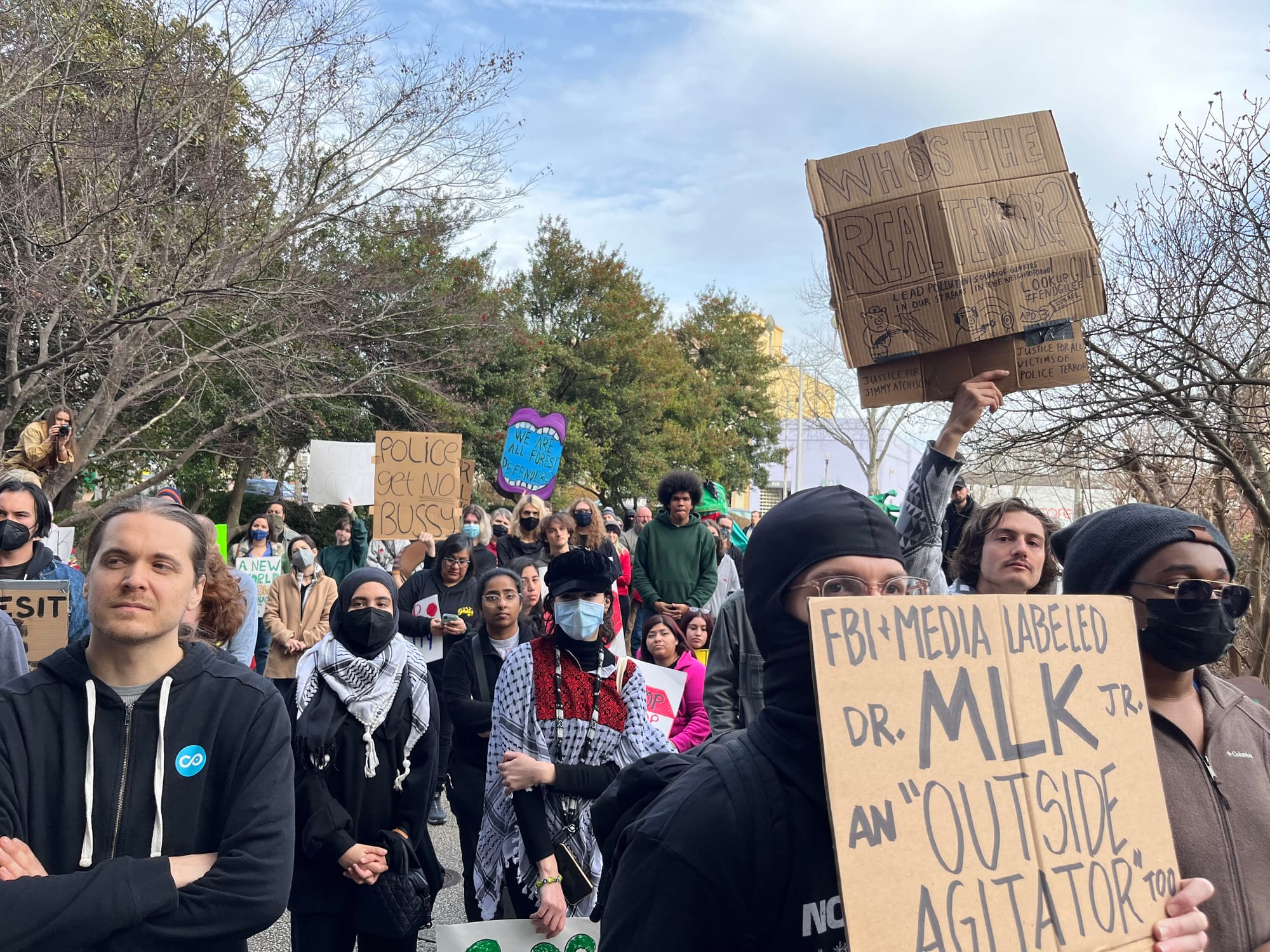
We give away all the good stuff to grifters.
Atlanta’s roots are Free and Rowdy. We’ve been selling a good time to passers-through since our inception. Our first mayor Moses Formwalt sold tin for stills and slung spirits at the city’s first-known saloon. Our path from there to here began with the reactive rise of Formwalt’s opposition party—led by a “New South” figure dubbed by white supremacist Henry Grady as the “Father of Atlanta,” who came to power on the platform of a “temperance man who hated civic disturbances”—but that’s a story for another day.
From there, the takers started coming and they never stopped coming. It’s now such a well-known phenomenon that it was merely a minor detail in the world’s biggest rap beef earlier this year, when Kendrick accused Drake of running to Atlanta to capitalize on our cultural clout.
Despite his stature, though, Drake himself barely warrants a footnote on our all-time carpetbagger power rankings. We’re ground zero for the financialization of America: real estate investors bought more than 20% of all homes for sale in metro Atlanta over the past decade, costing locals $1.25B of equity with (you guessed it) predominantly Black neighborhoods bearing more than half of that total loss. Couple that with the proven failure of the “Southern strategy” of economic development and a mayor who chose campaigning over tending to a catastrophic failure of critical infrastructure or settled for chump change from robber barons who bailed on a blatantly false promise to build affordable housing or indulged wealthy whiners instead of addressing citywide issues, and it becomes natural to wonder if we should start hanging a “Mission Accomplished” banner behind our boosterism efforts.
On top of multimillion-dollar sweeteners for film fests and disaster-in-waiting data centers, it’s only fitting that the World Cup will bookend a 30-year cycle of sacrificing our town to the volcanic god of economic development, in spite of substantial citizen concern and to wildly uneven results. As we once again scramble like good Southerners to clean house for company coming over, don’t be surprised to see the last few touches of home torn asunder by a pack of Red Dogs, this time unleashed from Cop City.
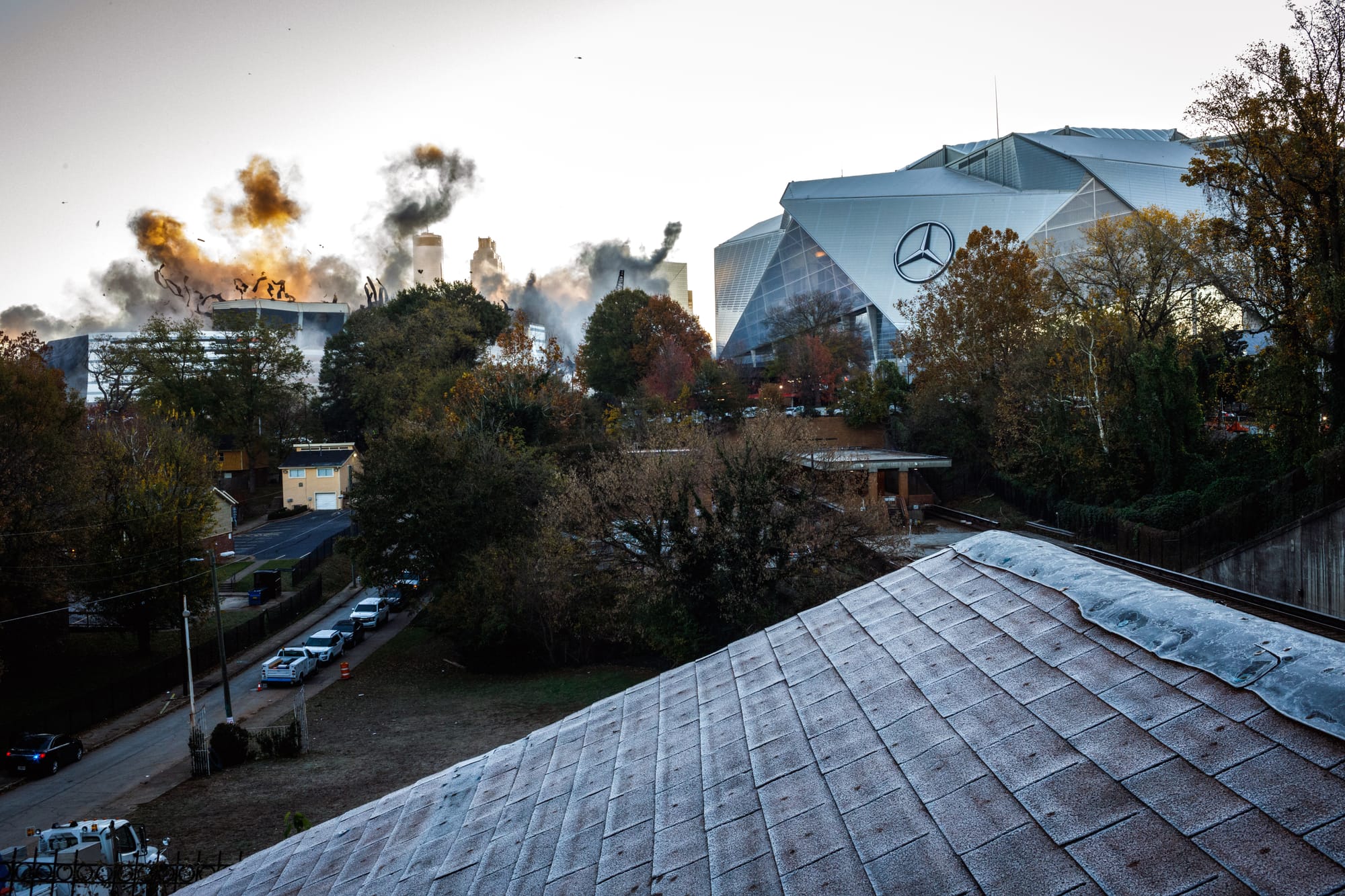
So, are we cooked? It sure feels that way sometimes.
But as the horrors persist, so must we, and with our feet planted firmly in this red clay. Dark as the night of our city’s soul may be, it’s the people here who shine moonlight through the pines.
Taken together, our ecosystem of makers and takers is a kudzu thicket. It’s wonderfully lush, deeply entwined, utterly untameable, largely invasive, ultimately not all good and not all bad. Try as we might, we simply cannot Atlanta Way our way to a neatly manicured path forward. What’s always made us beautiful is what keeps us wild.
The soul of Atlanta isn’t simply rare earth for corporate raiders to strip-mine, it’s a forest where a legendary MC can emerge from a cocoon with Grammy-worthy jazz flute in hand. Whatever spark helps launch our next arc to greatness is sure to come from a community or culture at the margins of our city’s machinery, and likely will be devalued or dismissed accordingly. We should never stop nurturing them, even when the leaders entrusted with the land on which they’re grown do.
The place we’re in today is a messy middle between a past that isn’t coming back and a future that can arrive faster than seems possible right now. As ever, the latter is what you make it. I may not get there with you, but you will get there if you don’t let the takers take your hope. After all, mine eyes have seen the glory of the coming of good trouble.
Kyle Stapleton is a husband, father, beer drinker, hell raiser, ordained Dudeist priest, and wild-eyed Southern boy. He’s proud to hail from Jimmy Carter country, which means he’ll always “do whatever I can, wherever I can, whenever I can, for as long as I can, with whatever I have, to try to make a difference.” The views shared above are strictly his own.
How I'd Fix Atlanta is an essay series by ATLiens for ATL. In each of these pieces, a thoughtful human argues for one way we could make our city better. Sometimes the ideas are serious. Other times? A little more lighthearted. From infrastructure to food trucks, public transit to wildflowers, nothing is off limits.
How I’d Fix Atlanta was created by Austin L. Ray. It's a free newsletter sent on a Thursday of most months. It's also an annual zine that costs money. Sometimes it’s a performance on a stage. Other times, it’s a fundraiser. It's always a bunch of stickers. Occasionally it's featured on a podcast or a legendary WABE show. How I’d Fix Atlanta is large, it contains multitudes.
Each writer is paid $700 for their essay. Wanna help support the series? Reply to this email to learn more about sponsorship opportunities.
